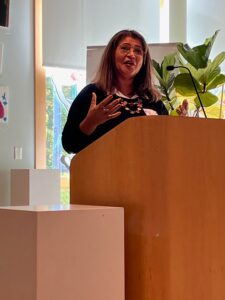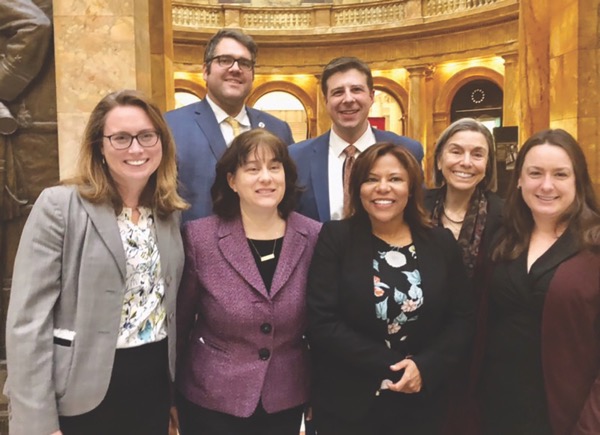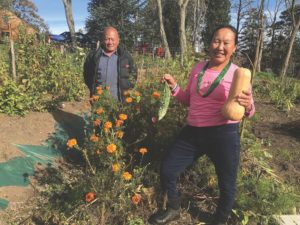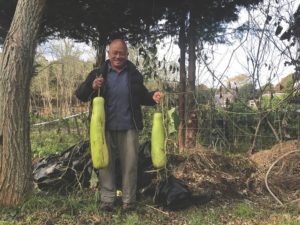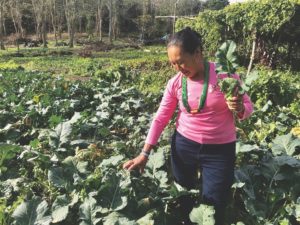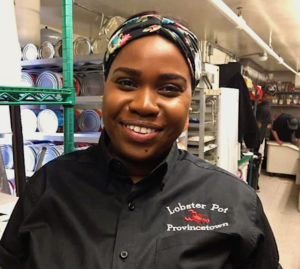This article includes excerpts from published reports in the Vineyard Gazette, the Nantucket Inquirer and Mirror, and the Falmouth Enterprise, reprinted with permission.
A series of immigration operations in Massachusetts — including simultaneous mass arrests on Nantucket and Martha’s Vineyard on the morning of May 27 that removed 40 people from the islands — have set Cape Cod’s already anxious immigrant communities even more on edge.
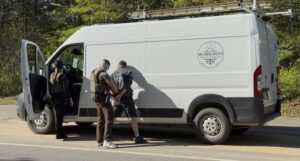
Contributing to the fear is that the tactics used by Immigration and Customs Enforcement (ICE) and related federal agencies have changed markedly in recent weeks. After widespread public education campaigns on the difference between administrative and judicial warrants, federal agents have in many cases stopped allowing people — including landlords, family members, and elected officials — to see the warrants they claim to have.
The agents have also begun concealing their faces and names, giving only the name of the agency they work for. A week after the May 27 raids, the agencies had still not released the names of the 40 people they arrested.
Perhaps most important, instead of seeking specific individuals with known criminal histories (and then also arresting other undocumented people they might find at that location), agents appear to be targeting contractor vans: stopping them on public roads and demanding that everyone inside prove their legal status.
According to the Vineyard Gazette, these developments have led even legal immigrants to stay home from work, school, church, and medical appointments to avoid being taken away from their families.
‘Everyone Is at Risk’
On May 27, the Vineyard Gazette’s Ethan Genter wrote the following:
Reports of officers in unmarked vehicles making stops in down-Island towns spread across social media in the morning, and witnesses said they saw masked officers stopping vehicles to question their occupants….
Thiago Alves, the owner of L&R Electrical Services, confirmed one of his workers was stopped by officers that were with the FBI and ICE….
“My guy said they are stopping all the work vans,” Mr. Alves said. “It’s nothing against [us], it’s pretty much everyone….”
One Island woman, who asked to be anonymous for fear of reprisal, was driving along State Road at about 7:30 a.m. when she saw officers arrest a man across the street from Vineyard Grocer near the cemetery.
While on her way to work, she saw more stops at the Barnes Road rotary, including by officers wearing Drug Enforcement Administration garb.
“They were just grabbing people out of their cars,” she said.
Emily Moehnke was driving her daughter to the 7 a.m. ferry and also saw someone stopped near the Vineyard Haven cemetery. A little later in the morning, she saw an MV Mini Splits truck pulled over by officers on Edgartown-Vineyard Haven Road….
Immigration attorney and Chappaquiddick resident Rachel Self, who did not know the particulars of Tuesday’s stops, said she has seen a shift in ICE’s focus in the last four months.
“While under the previous administration, people with serious criminal records might have been prioritized for arrest, now absolutely everyone is at risk of being detained,” she said. “There are no more priorities. ICE is going after the low-hanging fruit: people who show up to their immigration court hearings and check-in appointments, and people who have otherwise placed themselves on the radar by following the rules.”
Cyr: ‘It’s Shameful’
On May 29, Kaie Quigley of the Nantucket Inquirer and Mirror wrote:
Federal agents were seen around town throughout Tuesday morning, pulling over vehicles and arresting their occupants. Several individuals in handcuffs were later transported off the island via Coast Guard cutter.
It was not immediately clear whether the ICE activity was a targeted operation looking for offenders facing criminal charges or a general sweep seeking undocumented immigrants, although an alleged member of the notorious El Salvadoran MS-13 street gang and at least one alleged child sex offender were apprehended, according to a press release from ICE.
“Many” of those arrested had criminal histories, according to the release. It is not yet clear how many of the people arrested did not have any criminal history. None of the arrested individuals were identified.
The idea that non-criminals may have been detained is of concern to [Cape and Islands state Sen. Julian] Cyr. ICE activities on the island used to only target violent and egregious violators of the law.
“That’s what should be happening, from a public safety perspective,” Cyr said.
That appears to no longer be the case. Federal officials including President Donald Trump’s “Border Czar,” Tom Homan, have said that any undocumented immigrant in the country is eligible to be arrested and deported regardless of their criminal history.
“We have a federal administration that has no respect for the rule of law, or due process,” Cyr said.
“This sort of sweeping enforcement is designed to provoke and instill fear in immigrant communities. This is not just about law enforcement and keeping our community safe. It’s about a political agenda to provoke fear and demonize the very people who are essential to the fabric and workings of our community,” Cyr said….
“It’s shameful to see the immigrants that literally make our islands function, particularly in these most busy summer months, be targeted, harassed and forcibly removed from their families and their work,” Cyr told the Inquirer and Mirror Wednesday. “The indiscriminate pulling over of multiple work vans, basically profiling vehicles in a drag net, to capture people who may be assumed to be immigrants, demanding documentation of their status.”
Men in Masks
On May 22, Michael J. Rausch of the Falmouth Enterprise wrote:
Immigrants’ rights advocates have voiced outrage over the arrival of agents from the US Department of Immigration and Customs Enforcement (ICE) in Falmouth late last week. At least one individual was arrested by the federal agents who, the advocates say, did not present a warrant for the man’s detention or offer any reason for their actions.
The arrest took place in a West Falmouth neighborhood last Friday, May 16, and an account was originally posted on Facebook.
According to the report, a Brazilian house painter who was on his way to work was confronted by ICE agents, who demanded to see his passport; agents drove him back to his rental and, once inside, arrested him.
When the owner of the home asked to see the agents’ badges and their warrant, she was ignored.
The agents drove off with the man in custody….
Jerry F. Lanson is with the group Falmouth Immigrant Rights Coalition. Mr. Lanson is also a writing consultant for Harvard University’s Kennedy School of Government, and a professor emeritus at Emerson College in Boston, where he chaired the journalism faculty….
Lanson said there are serious questions being raised about the manner in which arrests are being carried out by ICE agents “throughout the state and throughout the country.” He said that the tactics used during these incidents — men in masks, carrying weapons, clad in heavy vests — is being purposely deployed to incite fear….
“It’s important for us to learn about it as citizens,” he said, “so we can understand the facts, and we can understand how we should react. That will take not only behind-the-scenes leadership — local, state, federal — but also on-the-scenes leadership. In other words, elected officials who are willing to speak out.”
Hard on the Children
On June 2, Ethan Genter of the Vineyard Gazette wrote:
“On Tuesday, when this started, people went home,” said Vilmar Rodrigues, a Brazilian immigrant who now works as a tax preparer in Vineyard Haven. “On Wednesday, nobody went into the streets.”
Eateries closed, appointments were cancelled, Brazilian churches decided to forgo services, and people hid out on farms.
“Even the people who are documented here, with a green card, are very scared,” Mr. Rodrigues, who previously worked as an attorney in Sao Paulo, said….
The climate of concern can be especially hard on the children of immigrants, even if they were born in the country and are American citizens, said Paula Reidbord, a Brazilian immigrant who moved to the U.S. more than 30 years ago and now works at MV Mediation.
The Island schools have many children of immigrants — about 30 percent of public school students speak Portuguese at home.
On May 30, Kaie Quigley of the Nantucket Inquirer and Mirror wrote:
None of the 40 people arrested on Nantucket and Martha’s Vineyard Tuesday have been identified by Immigration and Customs Enforcement….
It remains unclear how many of the people arrested had no criminal history. It has also not been confirmed that all of the people arrested were in the country illegally….
“Our hearts go out to the families of those detained, and our concern for the direction of American democracy is palpable. Particularly important are root principles of American democracy that assumes innocence until proven otherwise and habeas corpus, which assures the right of the accused to challenge their detention in a court of law. It is our hope that every person taken be afforded the right to defend themselves in a court of law, as quickly as possible,” Nantucket religious leaders Rabbi Gary M. Bretton-Granatoor, Reverends Max Wolf and Althea Smith, Father John Murray, Reverend Carr Holland, Rev. Derek Worthington and Imam Abrar Qureshi said in a statement Friday.
